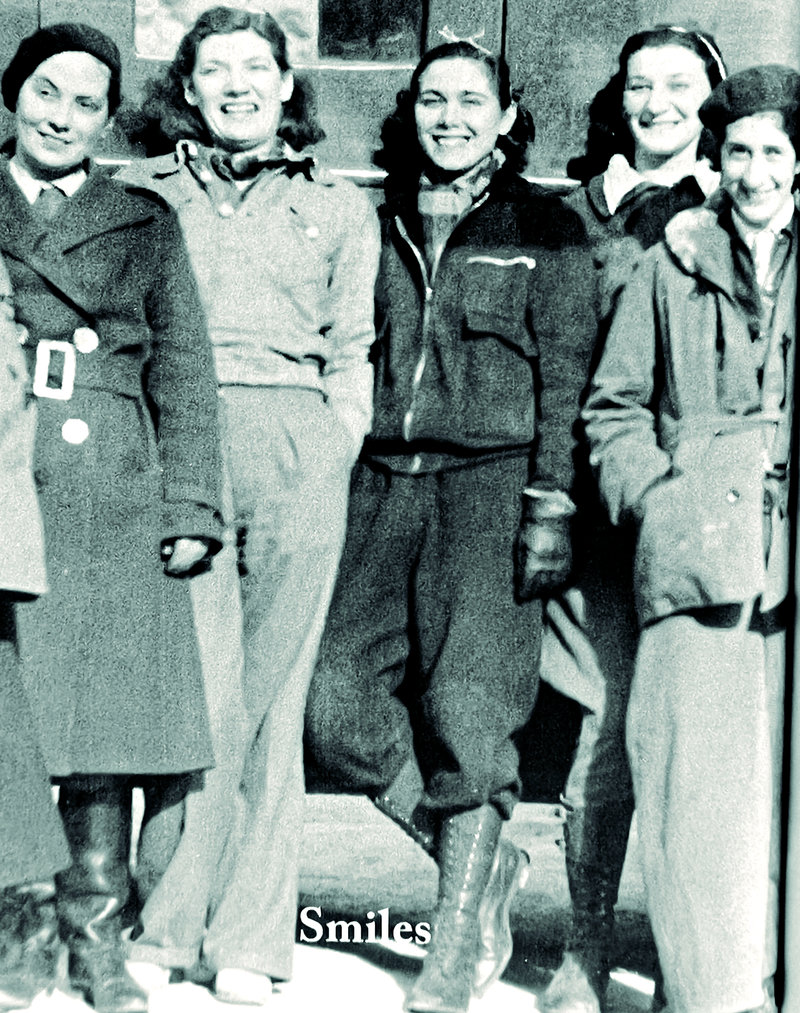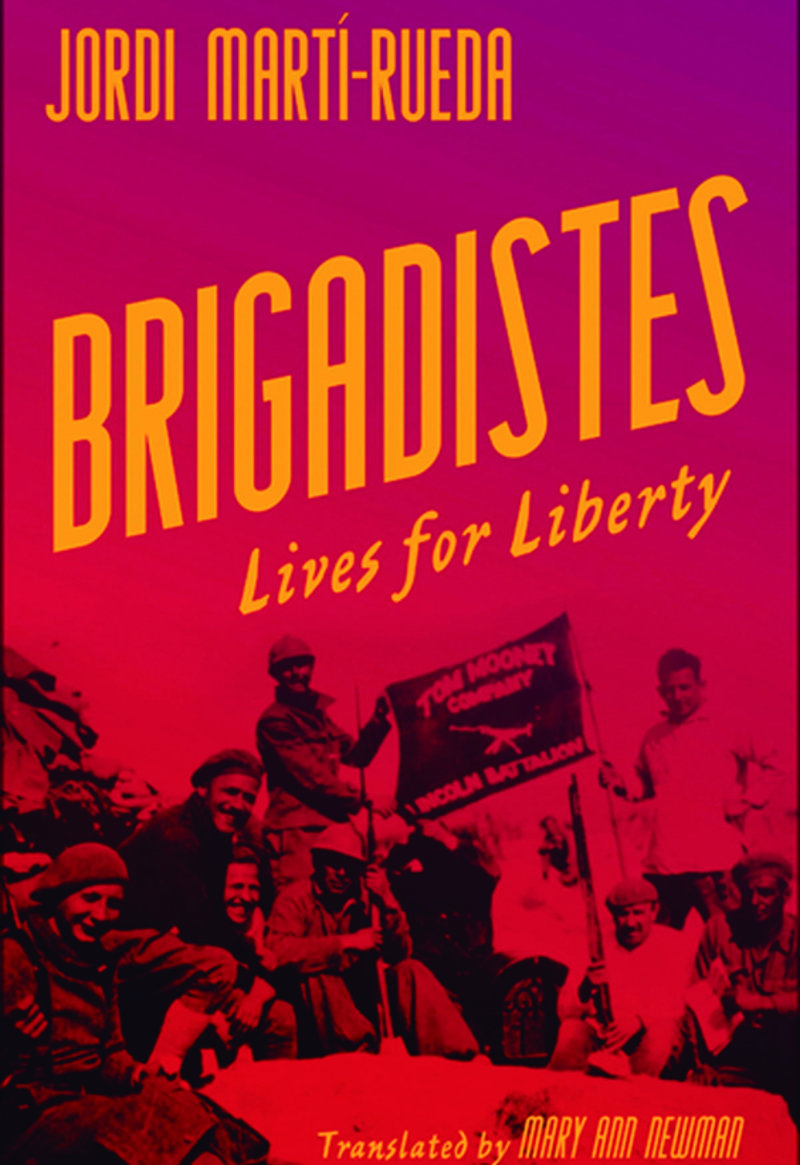Rows of wounded
Brigadistes, a short book of 60 page-long biographies and 60 full-page photos, is a moving tribute to the foreign volunteers fighting fascism in the Spanish Civil War
The author does not restrict himself to a conventional biography, but tells a moving story about each of them
The format of Brigadistes is original. On the left a full-page photo brings to life the person described on the right-hand page. The format invites readers to study the stunning photos, rather than just glance casually over them. The photos make up half the book, not just a few illustrative pages. These volunteers, young as we all once were, were the cream of the working class. Most had left homes, jobs and loved ones. Many were Austrians or Germans and had no homes to return to unless fascism was defeated. Some 10,000 of the 32-35,000 brigadistes from 50 countries died in the war.
Lyrical biography
Jordi Martí-Rueda’s words on the right-hand pages are carefully and lyrically written. The author is emotionally committed to these volunteers. He does not restrict himself to a conventional biography, but tells a moving story about each of them. Here’s one example. In 2007 a small group of Irish people scattered the ashes of Michael O’Riordan (p.83) in Vinebre at exactly the spot where Michael, their father and grandfather, had crossed the Ebre with a Catalan flag in one hand and a Republican in the other on 25 July 1938, the first day of the Battle of the Ebre. One of his sons then sang a version of the patriotic Catalan song La Santa Espina. The ex-IRA man, ex-brigadista Michael O’Riordan had loved it and sung it to his children. The story underlines the importance of the war for the surviving brigadistes. Joining the Brigades was the greatest, most sincere deed of their lives, such that in this case a volunteer would pass on to his children a song he had picked up in Catalonia.
I could pick stories from the book almost at random. The Jewish American Harry Fisher (p.61), brought up in an orphanage, working at anything and everything to survive, fought capitalism throughout the Depression of the 1930s. A volunteer in Spain in the Abraham Lincoln Brigade (led till his death in action by Oliver Law --p.33--, the first black leader of an integrated military unit in U.S. history), he survived unscathed both the Civil War and the Second World War flying as a gunner on bombers. Harry died as he had lived: aged 92, he collapsed during a New York demonstration in March 2003 against the invasion of Iraq.
Several women are included too, many more than usually feature in International Brigade books. The photo of Anne Taft from the Bronx shows her in high boots and gloves grinning broadly among fellow-nurses. On the Jarama front, using an abandoned school, she and her comrades worked non-stop in the freezing improvised operating theatres and saved dozens of lives. In the cold and blood, nights without sleep, “the only thing that kept them from fainting were the rows of wounded waiting to be operated on” (p.35).
Too many of the stories end sadly, with young lives cut short. Photos catch often-smiling men and women, soon to be dead. Nearly one third of the brigadistes died in Spain. By the end of World War Two, well over half had been killed. The Austrian nurse Paula Draxler (p.113) was executed by the Nazis in 1944. Or the Australian Aileen Palmer, who valiantly threw red paint over 10 Downing Street’s front door to protest Chamberlain’s appeasement of Hitler, was then driven into mental illness by her family’s lack of support.
Purple
Martí-Rueda’s lyrical and elegant prose leads at times to a certain overwriting. His style tends to rhetorical, purple patches, as in this example:
On the disfigured skin of the Jarama valley, enemy fire erected a wall between the living and those who had fallen silent. (p.31)
Or again:
The doctors and nurses discovered that war had also wounded them. The wounds were not visible, but their muscles were frayed and they had lost the desire to speak. They had fallen to the bottom of a well and voices echoed down from the top of the shaft where the world was hiding. (p.45)
Readers may enjoy or be irritated by these rhetorical flourishes. And his passion leads also to unnecessary inaccuracies. Here he describes the black volunteer Jimmy Yates:
He had grown up in a Mississippi town where every day the dawn revealed black bodies dangling from the branches of the trees. (p.15)
Come now, Jordi! Every day?? The material is powerful enough to stand on its own, without exaggeration.
The other point of criticism is a political one. Noble, revolutionary volunteers died in the Battle of the Ebre, while their political leaders followed the counter-revolutionary line of Stalin. Books on the International Brigades need to include some recognition of the political issues. I’m sure many readers will see this comment as a petty quibble. They will argue that Brigadistes is clearly designed to popularise the International Brigades for a new generation.
True, but it is not sufficient only to praise the volunteers. Martí-Rueda concludes his Introduction:
Sixty flashes of light, sixty brush-strokes, conjoined by one sole need and desire: to fight fascism and defeat it before it was too late. And today it is imperative to relive them. (p.4)
To “defeat fascism before it’s too late”, we need to talk of what it is and how to defeat it. And the talk needs to lead to action. Let’s hope that the inspiring fighters portrayed in the book stimulate readers to organise and join mass action in the streets to prevent fascists organising, which is what most brigadistes were doing in their countries of origin before volunteering. The book fails, though, to make this link.
Jordi Martí-Rueda has researched and written a fine and fascinating book, evoking romance and heroism without averting his readers’ eyes from death and suffering.
In these times of crises, the haunting, poignant stories he tells remind us of the best of human endeavour.
book review
Civil War Historian
Jordi Martí-Rueda was born in Barcelona in 1976. A historian, he has specialised in the International Brigades. His first book was the prize-winning Tocats pel vent: Cinc històries humanes de les Brigades Internacionals i la Guerra Civil (2015). Recently (2021), he has published a third book, the quite different Swing, swing, swing, vides de jazz, rebel·lia i ball (Lives of Jazz, Rebellion and Dance), stories of how music can change lives.




